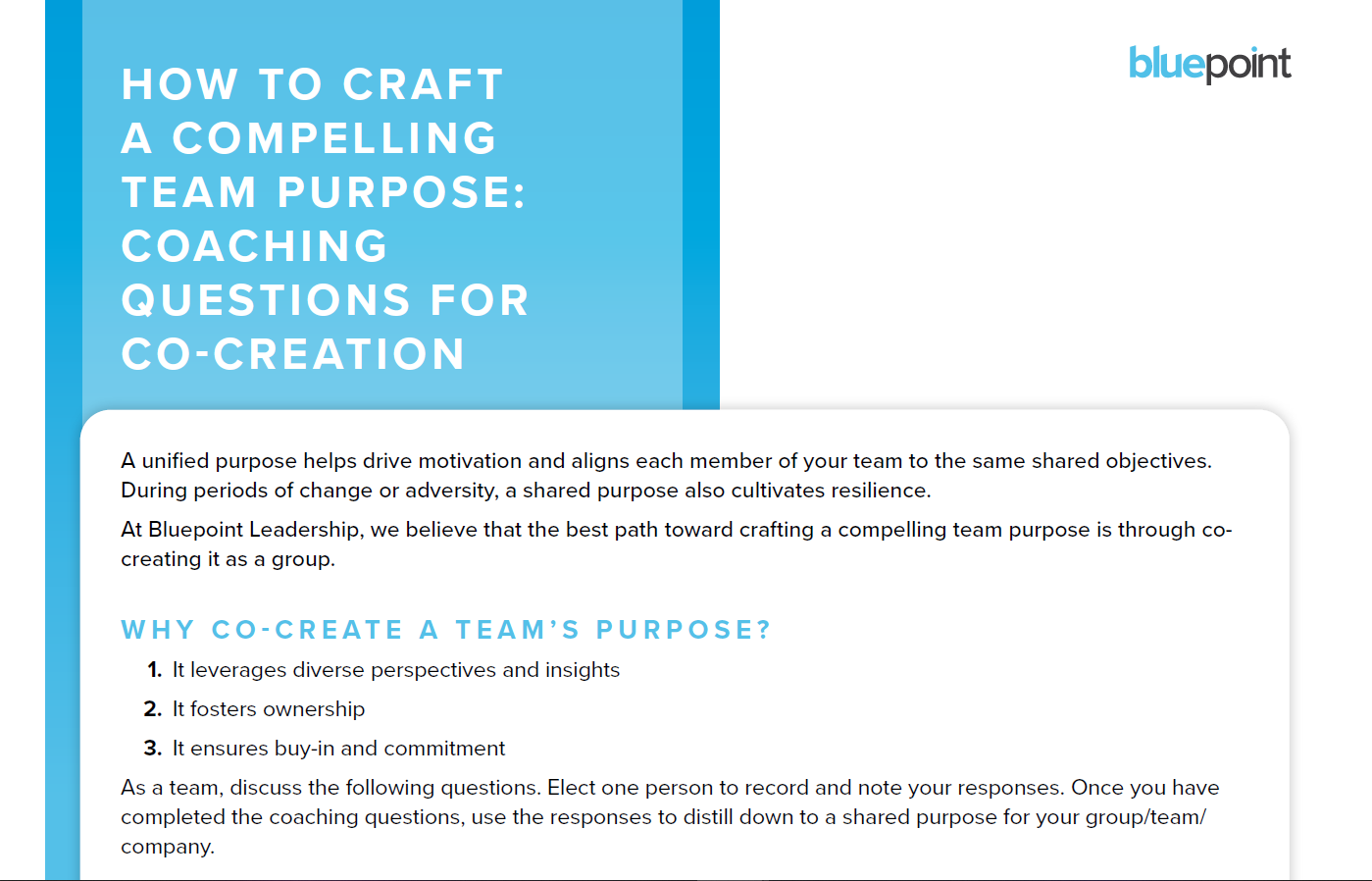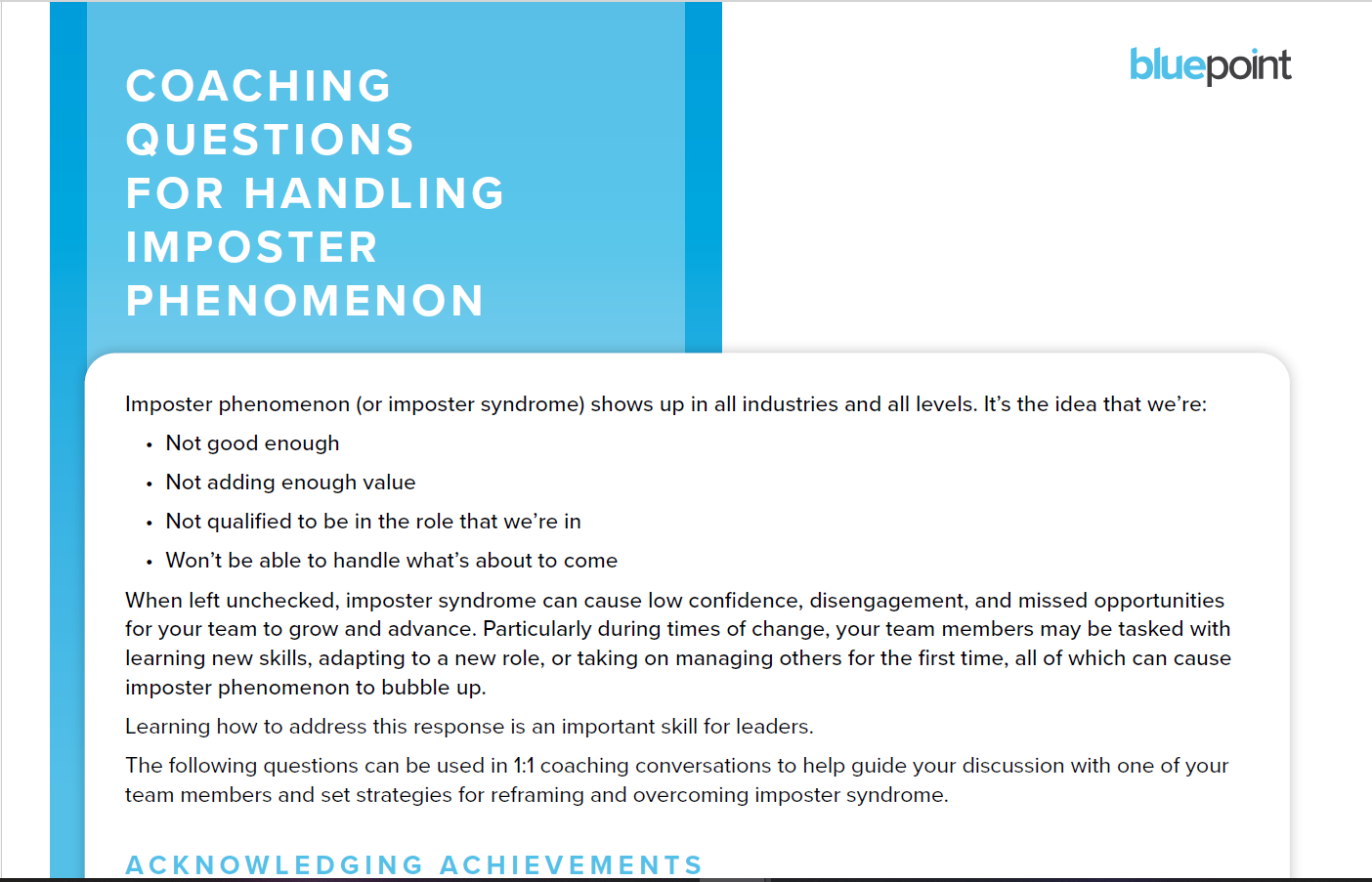If we had to sum up coaching in one sentence, it would be this: Coaching is an act of faith in others.
Coaching is the most effective tool available to leaders to help their team members learn and grow. Leaders use coaching to inspire their team members to act. They gain a new idea, a fresh perspective, or a renewed personal commitment. They leave affirmed, challenged, or energized. Coaches overall help team members see exciting new possibilities, uncover unused talents, or approach their work with a whole new attitude.
Coaching is all about the other person––and the coaching conversation is virtually devoid of self-interest. In a coaching conversation, the leader (you) is entirely focused on the Talent (your team member). You will focus on their abilities, challenges, aspirations, or anything else they wish to discuss. As coaches, the more we remove ourselves from the agenda (the decision, challenge, opportunity, performance, aspirations, etc.), the greater the impact of our coaching. Remember, the hallmark of a coaching conversation is unmistakable: The other person leaves the conversation better in some way.
Coaching is a risky and difficult endeavor. However, being a crucial part of the development of others will make you glad you chose to coach. By coaching, we choose every day to engage in conversations that others avoid, to listen differently, and to give our time and attention in service of others.
When honing your coaching skills, keep in mind these six main principles of coaching and try to incorporate them into your daily interactions and mindset.
- Every conversation has the potential to significantly increase performance and accelerate development.
- People will change only when they decide to do so.
- Great coaches see others as talented, resourceful, and fully capable of making their own best decisions.
- Powerful coaching conversations are light on advice, guidance, and direction but are rich in appreciation, challenges, questions, and constructive confrontation.
- Powerful coaching conversations can occur only in trust-based relationships.
- The Leader Coach owns the process; the Talent owns the agenda.
Now that you understand the purpose and mindset that coaches bring into an engagement, and the heightened focus on the content and context of coaching conversations, we’ll turn our attention to the coaching process.
Coaching Roadmap
While every coaching engagement is unique, skilled coaches will apply a loose, fluid structure to their work with their clients. This provides a road map for directional progress and enables the client to have a sense of “where are we now and where are we going?” This canvas upon which the coach and client will paint together becomes the developmental landscape that enables growth to be identified, practiced, and achieved.
Below is a very basic diagram that outlines the flow of a coaching engagement. It is neither rigid nor tactical, but intended to illustrate a loose outline of how an actual engagement might progress.
What happens specifically in each coaching conversation will dictate which steps are helpful to the client, how long each stage will take, and when it is time to move on.

Unfolding the Coaching Process
As you can see, there really is no hidden mystery in the coaching process. We begin by establishing a solid, trusting, open relationship between parties, and setting ground rules for the work.
The focus then turns to a deep understanding of what is currently happening for the client. What are their actual and perceived realities that brought them into the coaching dynamic?
Eventually, the work moves into the phase of defining and articulating what the client would like to have happen, what they wish to learn or do, and what outcome they seek. This in turn requires a careful assessment of how their current situation is impacting that desire, and what role they need to play in the pursuit of their own goal.
At this point, the client will be able to identify a specific developmental objective and with the coach’s help, will begin to take action to adopt the new behavior, skill, mindset or other needed changes. The engagement closes when the coach and client can validate the desired learning and progress.
Overall, effective coaching is a blend of interpersonal skill with a process orientation in the background. It is both a science and an art deployed for the benefit of the client. And its effectiveness has proven transformational for both individuals and organizations.
How are your leaders and workplace leveraging the benefits of coaching?
About The Author

Neil Bryant
Neil is committed to the development of leaders… executive, mid-level, and emerging… and supporting all professionals who seek to elevate their performance and enjoyment of work. Following a meaningful career in sales, marketing, consulting, and business management in large corporations, he turned his focus to the leadership development and Executive Coaching fields. His passion lies in enabling leaders, and all committed professionals, to become the most effective and satisfying version of themselves, particularly in the context of their work environment.
Related Resources
Subscribe to newsletter
Subscribe to our newsletter today and receive innovative, insightful and thought provoking resources (videos, webinars and articles) all effective tools for developing leadership talent.
This is a gated resource. Contact sales at info@bluepointleadership.com for more information or reach out here: Contact Us
This is a member-only resource. Contact sales at info@bluepointleadership.com for more information.





